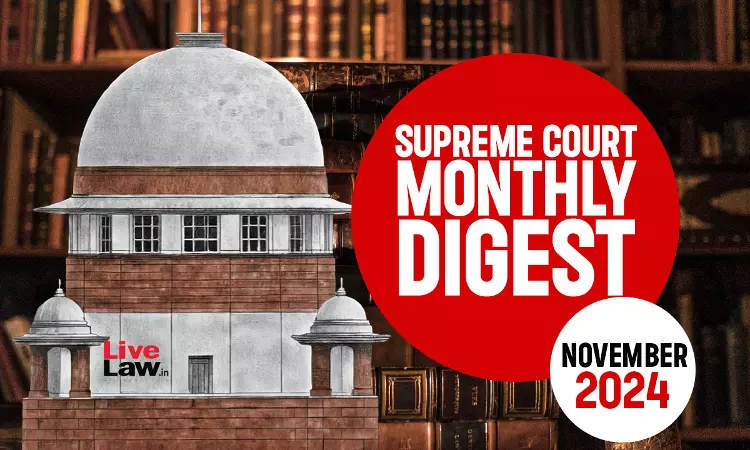Supreme Court Monthly Digest- November 2024 With Statute And Subject Wise Index
LIVELAW NEWS NETWORK
9 Jan 2025 6:03 PM IST

Next Story
9 Jan 2025 6:03 PM IST
Adverse PossessionThe dispute involved the ownership and possession of land claimed by the respondents (plaintiffs) based on revenue records and challenged by the appellants (State of Haryana and PWD) on the grounds of adverse possession. The Supreme Court upheld the title of the plaintiffs, based on jamabandi entries, registered sale deeds, and mutation records, which carried a presumption...
